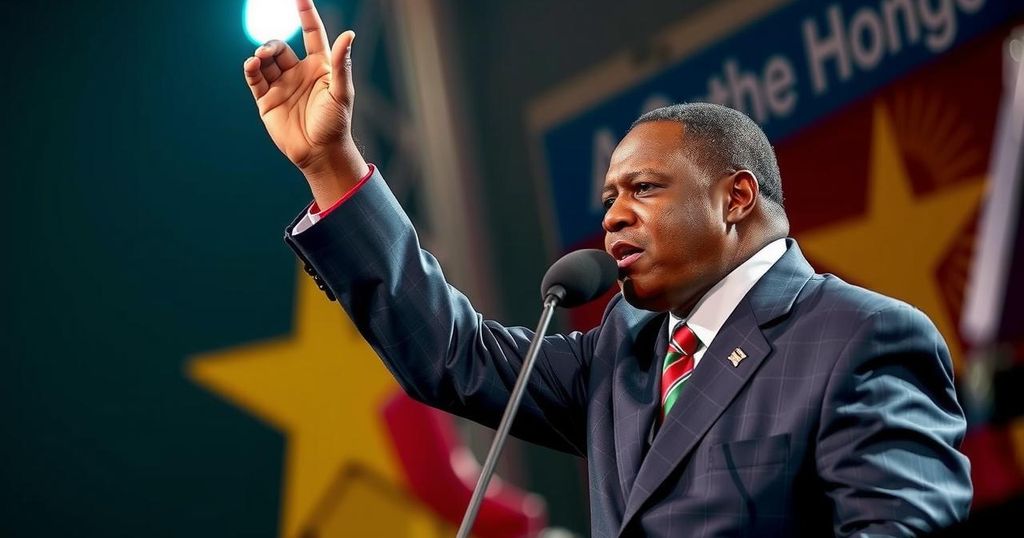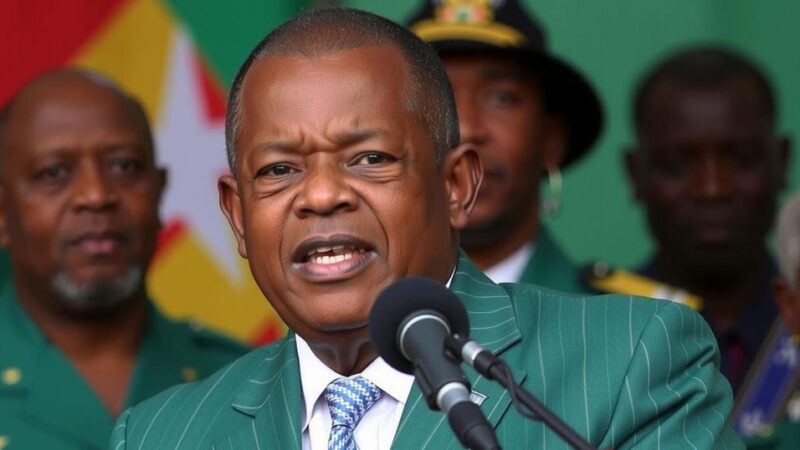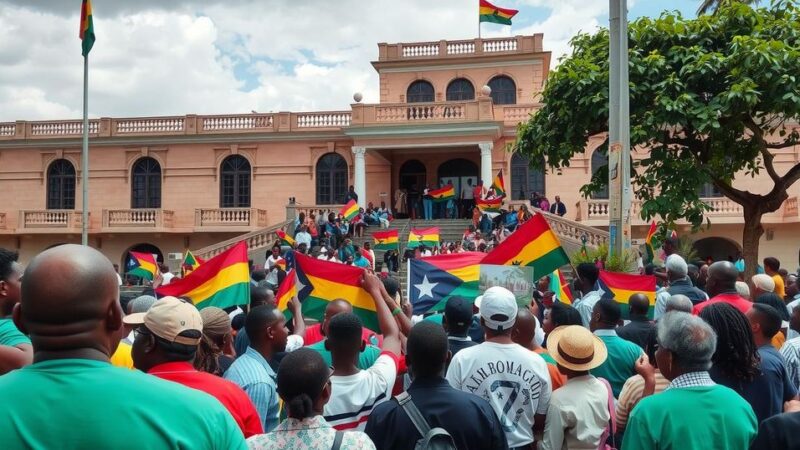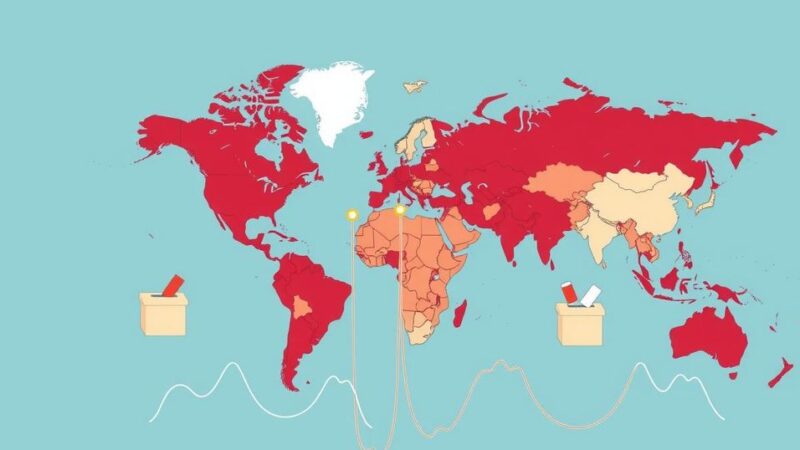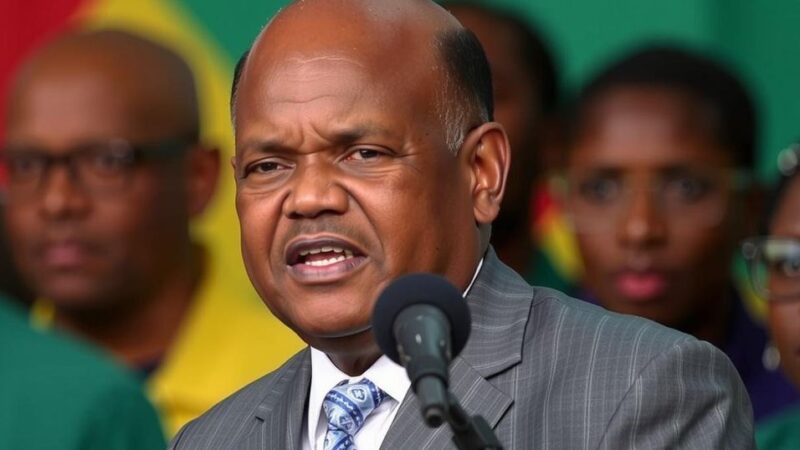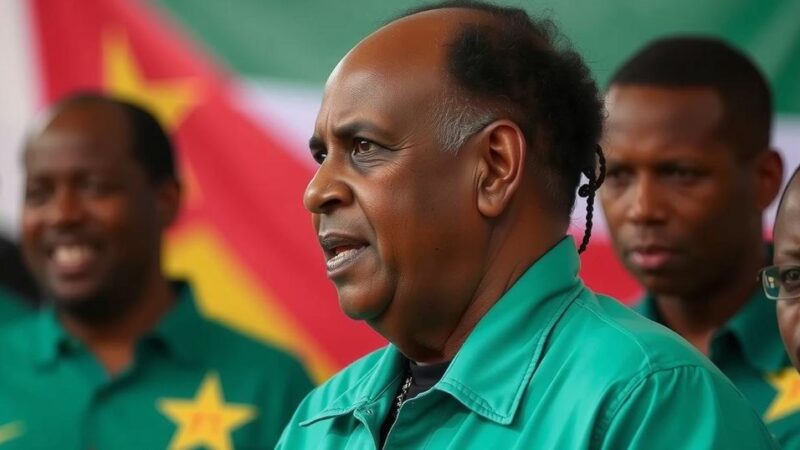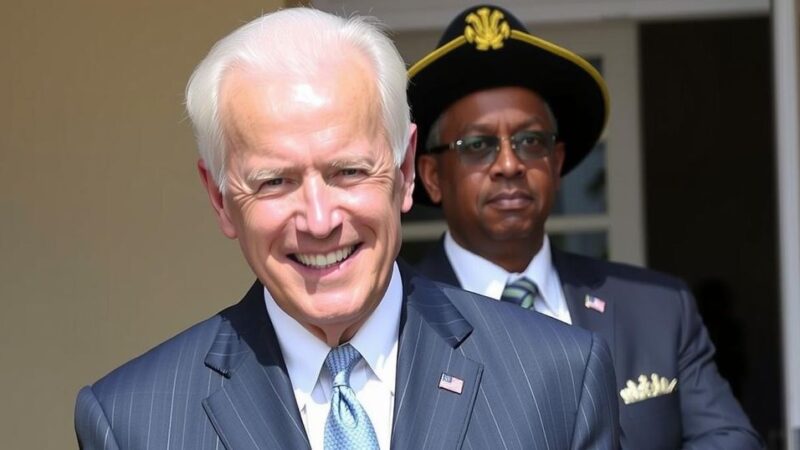Mozambique’s presidential election saw ruling party candidate Daniel Chapo win decisively with 70.7% of the votes, overshadowing the results by opposition candidate Venâncio Mondlane. The electoral process faced criticism due to violence, including the murders of two opposition members, and allegations of widespread voter fraud. Calls for peaceful protests emerged as the country confronts a challenging political and economic landscape.
Mozambique’s ruling party Frelimo has declared victory in the recent presidential election, with its candidate Daniel Chapo receiving an overwhelming 70.7% of the vote, as reported by the country’s election commission. This result allows him to bypass a runoff election. The opposition candidate, Venâncio Mondlane, garnered 20.3% of the votes but had garnered significant support among younger voters, positioning himself as a promising alternative. Tragically, the election was overshadowed by violence, particularly the murders of two opposition figures, Elvino Dias, an attorney preparing to contest the election results, and Paulo Guambe, a member of the Podemos party, who supported Mondlane. Leading up to the electoral process, civil society organizations had raised alarms about the integrity of the elections, accusing Frelimo of registering nearly 900,000 fraudulent voters in a country with an electorate of about 17 million. There were numerous allegations of electoral malfeasance, including ballot stuffing and discrepancies in vote counting, as echoed by both local and international election observers. This election comes at a time when Mozambique grapples with economic difficulties following a corruption scandal in 2016 involving $2 billion in undisclosed loans, which led to a withdrawal of financial support from international bodies like the IMF. Mondlane, a former radio DJ who resonates deeply with the younger electorate, called for peaceful protests to demand a change in governance. He emphasized that the populace should assert their desire for a shift in the political narrative. Furthermore, Zenaida Machado from Human Rights Watch has urged the authorities to safeguard the rights to peaceful assembly while also calling for transparency in handling reports of violence against demonstrators and press members. With heightened tensions surrounding the election results and calls for reform circulating throughout the public, the events in Mozambique continue to unfold with a vigilant eye from both domestic and international observers.
The political landscape in Mozambique has been dominated by Frelimo, which has retained power for nearly half a century. Despite claims of electoral integrity, recent elections have been fraught with allegations of voter manipulation and political violence, including the recent killings of opposition members. This context presents a concerning backdrop to the nation’s ongoing struggles with economic instability and governance issues stemming from past corruption scandals.
In summary, the presidential election in Mozambique has raised significant concerns regarding electoral integrity and political stability. The victory of Daniel Chapo amidst allegations of voter fraud and the tragic killings of opposition figures highlights the complexities of the country’s democratic processes. As protests loom due to the opposition’s calls for reform, the government’s response will be crucial in determining the future political landscape and the rights of its citizens.
Original Source: www.theguardian.com

